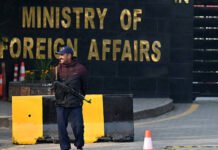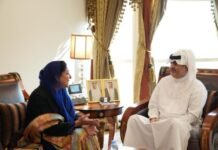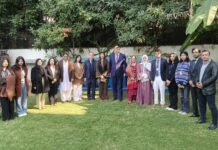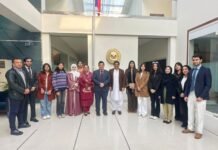Kuala Lumpur, 31 May 2022 (TDI): Dato’ Sri Saifuddin Abdullah, the current Minister of Foreign Affairs of Malaysia is visiting the Scandinavian countries. He will visit Sweden, Denmark, and Norway. The visit will last till June 5, 2022.
Press Release: Official Visit of the Minister of Foreign Affairs, YB Dato’ Sri @saifuddinabd to Sweden, Denmark and Norway, 29 May – 5 June 2022 pic.twitter.com/HTJptTaMmj
— Wisma Putra (@MalaysiaMFA) May 29, 2022
Malaysia and Sweden’s relationship
Malaysia and Sweden’s relationship is based on a bilateral agreement signed on the 3rd of March 1979 in Kuala Lumpur safety and protection of the investments.
In 1967 an agreement on the air services was signed between the two countries. Both countries enjoy a bilateral relationship where they have an agreement on the avoidance of double taxation.
Malaysia’s location has always gathered an important cultural, economic, social, and trade link between the island of South Asia and the mainland through the straits of Malacca which separates the Malay peninsula from the archipelago.
Key maritime trade from China, India, the Middle East, and the east coast of Africa is conducted from this strait. Before the European colonization, the Portuguese in the 16th and 17th centuries were the first European colonial power to establish themselves on the Malay Peninsula and South East Asia.
Swedish export to Malaysia comprises telecommunication equipment, motor vehicles, chemical products, power generating machinery, paper as well as iron core, and steel.
On the contrary, imports include electronics, and electrical components, machinery and apparatus, textiles, palm oil, and raw rubber.
Denmark-Malaysia ties
Denmark and Malaysia established their diplomatic relations in 1968. Malaysia has never maintained a resident embassy in Denmark despite Denmark’s substantial development support and bilateral trade relationships.
Denmark and Malaysia signed an agreement on financial and technical support in 2008. Both countries signed an agreement on a clean development mechanism.
Norway-Malaysia Relations
Norway and Malaysia enjoy strong diplomatic and bilateral relationships in political-economic and cultural fields. Malaysia has a consulate in Oslo, while Norway has an Embassy in Kuala Lumpur.
Both countries are oil-producing therefore petroleum industry is considered to be the most important factor in their relationship including the agricultural trade.
Norway is in a process of establishing a free trade agreement with Malaysia through the European Free Trade Association, moreover, Norway provides Malaysia with military equipment and defense services.
Malaysia’s Foreign Policy
Malaysia focuses on an independent, impartial, and unbiased foreign policy based on the principles of peace, humanity, justice, and equality, and contributes positively to building and safeguarding Malaysia’s sovereignty and contributing toward an equitable community of nations through healthy and meaningful diplomatic ties.
Malaysia’s foreign policy is influenced by its strategic location in Southeast Asia, trading in its unique demographic arrangements. The country has served the best in its coherency and consistency in the given changing domestic and external affairs.
ASEAN has always remained the cornerstone for Malaysia’s foreign policy strengthening its bilateral and multilateral ties with the world at large. As a member of the United Nations Malaysia has played a significant role in multilateralism in advancing global peace and security.
Malaysia has always managed its ways of engagement and preferred wholesome cooperation rather than isolation and unilateralism.
As a country with a large Muslim majority, it has played a magnificent role in the solidarity of the Muslim Ummah and its participation and contribution to the Organization of Islamic Cooperation.
Malaysia has engaged itself in the Non-Aligned Movements, the Commonwealth, Group of (G77), Developing Eight, Asia Middle East Dialogue, Far East Asia Latin America Cooperation, Indian Ocean Rim Association, Asia Europe meeting, and Asia Pacific Economic Cooperation as a developing nation.
It is always considered as a country responding with principles to the complexity of the global affairs and its respect for the territorial integrity and non-interference in other nations’ affairs.








